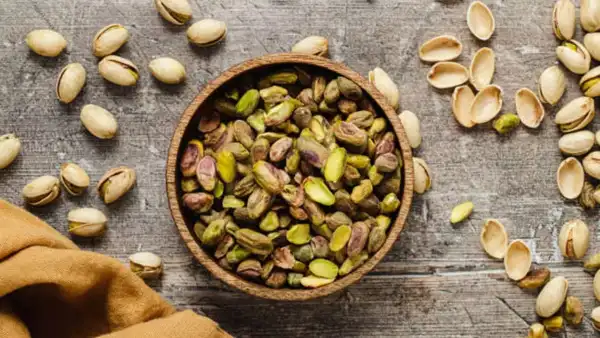Colorectal cancer—also known as bowel or colon cancer—develops in the colon or rectum, often beginning as small growths called polyps. Over time, these polyps can turn cancerous and spread through blood or lymph vessels to other parts of the body.
According to the American Cancer Society, colorectal cancer is the third most commonly diagnosed cancer in both men and women in the United States, with an estimated 107,320 new cases expected in 2025.
While early detection and regular screenings are essential, lifestyle choices—including diet—play a key role in prevention. Emerging research highlights the cancer-protective potential of certain nuts and seeds, thanks to their powerful bioactive compounds.
Here’s a look at some of the best nuts and seeds shown to reduce the risk of colorectal cancer:
1. Walnuts
A study published in Cancer Prevention Research (UConn School of Medicine) found that ellagitannins and polyphenols in walnuts can reduce cancer-promoting proteins in colon polyps. In a small trial involving 39 participants, eating walnuts increased urolithin levels—metabolites linked to lower cancer risk.
2. Peanuts
A study from Taiwan, as part of the Nurses’ Health Study, found that peanut consumption was associated with up to a 58% reduced risk of colorectal cancer in women. Rich in healthy fats and plant-based compounds, peanuts make a simple, effective addition to preventive diets.
3. Pistachios
Pistachios are packed with B vitamins, polyphenols, and dietary fiber, all of which support gut health and reduce inflammation. Research published in the National Library of Medicine suggests that regular consumption may help prevent the onset of colorectal cancer.
4. Hazelnuts
Hazelnuts—especially varieties from Turkey and Oregon—contain antioxidants and phenolic compounds that inhibit cancer cell growth. Studies have shown these compounds can play a role in slowing or preventing cancer progression in the colon.
5. Flaxseeds
Flaxseeds are nutritional powerhouses rich in lignans, alpha-linolenic acid, and dietary fiber. These elements have been linked to reduced risk and slower progression of colon tumors. Both human and animal studies point to their strong role in supporting colon health and regulating abnormal cell growth.
6. Pumpkin Seeds
Animal studies have shown that pumpkin seed extract may reduce tumor growth and inflammation in the colon. Rats fed pumpkin seed extract showed healthier colon metrics, suggesting its cancer-preventive potential in appropriate dietary amounts.
7. Sesame Seeds
Sesame seeds contain unique compounds like sesamin, sesamol, and sesamolin, which have demonstrated anti-cancer and anti-proliferative effects on colon and rectal cancer cells. Incorporating them into daily meals could support long-term gut health.
A Word of Caution
While these nuts and seeds offer impressive health benefits, they should be consumed in moderation as part of a balanced diet. Overconsumption may lead to unwanted calorie intake or digestive issues.
Final Thought:
Ancient foods like seeds and nuts are more than just snacks—they’re packed with compounds that modern science is only beginning to understand fully. By making them a regular part of your diet, you may not only boost overall health but also reduce your long-term cancer risk.
Read also: https://newsonthego.in/the-importance-of-vitamin-b3-and-its-natural-food-sources/




